Vehicle Miles Traveled
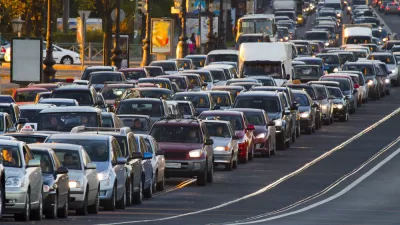
Peak Motorization: Measuring Rates of Auto Ownership and Distances Driven
Passenger vehicle ownership and vehicle miles traveled per person and per household remain below their historic peaks set in 2006 and 2004, respectively, but they have been on the upswing for the past four to five years, according to new data.

New Study Provides a Counter-Narrative for Ride-Hailing Companies
A new study finds evidence that ride-hailing trips are at least as efficient, and often more efficient, than private, personal automobile trips.
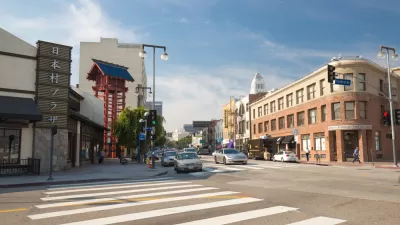
The Final Days of 'Level of Service' in California's Environmental Review Process
A long-awaited draft update of the California Environmental Quality Act (CEQA) has finally been released, and Level of Service will finally be a thing of the past in the next two to four years.

U.S. Drivers Continue Mileage Increase for Sixth Consecutive Year
Americans have increased their driving every year since 2011, and the first six months of 2017 were no different, increasing 1.6 percent compared to last year, according to data released Tuesday by the Federal Highway Administration.

Too Much Driving is Spoiling California's Emissions Report Card
A new economics report from Beacon Economics for Next 10 shows that what good for the environment is good for the state's economy, but the results are marred by increasing vehicle-miles-traveled. The state's housing crisis is partly to blame.

Another Month, Another Mileage Record Set
Americans preference to travel in their own personal vehicles shows no signs of abating, reflected by May mileage data, the most recent compiled by the Federal Highway Administration, indicating a 2.2 percent increase compared with May 2016.
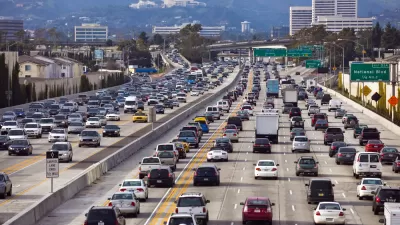
Lowest Gas Prices in 12 Years Contribute to Record Travel This Holiday Weekend
Two new reports on transportation funding issued in advance of the July 4th weekend focus attention on gas prices and vehicle travel. Seven states will increase gas taxes on July 1 according to the Institute on Taxation and Economic Policy.
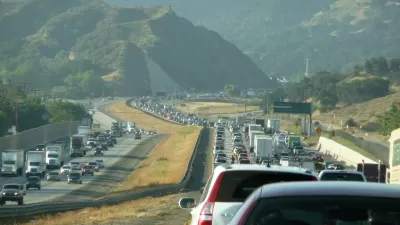
April FHWA Report Shows Americans Continue to Drive More
There is good news in the most recent Federal Highway Administration Travel Trends report—if you look hard enough.
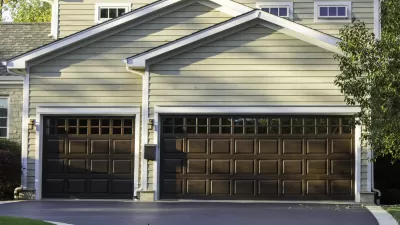
Millennials Leading a Decline in Car Ownership in Some U.S. Cities
The young and the recently arrived in Seattle are less and less likely to own a car, according to new Seattle Times analysis of Census data.

Study: Reduce Traffic with Mixed-Use Development
A new study explores how the built environment influences vehicle miles traveled.

2016 Sets New U.S. Driving Record as Gas Prices Remain Low
So much for the 2015 record of 3.148 trillion miles. Last year saw a cumulative travel increase of 2.8 percent to 3.218 trillion miles, setting a new record as cheap gas contributed to increased driving.

A Modest Proposal: Stop Subsidizing Driving
Joe Cortright argues for a new approach to the discussion about the country's dependence on automobiles: talk about responsibility, not morals.

Americans Continue Relentless Increase in Driving
New data released by the Federal Highway Administration shows that vehicle mile traveled increased three percent for the first nine months of 2016 compared to the same period last year. Driving has increased continuously since April 2014.
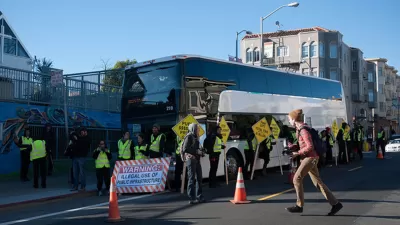
The Downside of Removing Tech Buses from Neighborhoods
A new study has shown that moving tech shuttle stops from neighborhoods to conform to a new "hub plan" would result in a drop in bus ridership, with most former riders resorting to driving their own vehicles to their Silicon Valley workplaces.

Are Texans Driving Less? Depends on Who You Ask
Local and regional transportation planners responded skeptically to data from the Texas Department of Transportation showing Texans driving less.
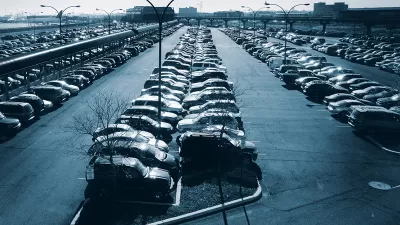
Editorial: A Compelling Case for a Carbon Tax
With record amounts of gasoline burned by America's passenger vehicle fleet which is increasing composed of light trucks rather than cars, and with Americans driving record distances, The Washington Post argues it's time for a carbon tax.
Traffic Deaths Take a Big Jump in 2016
A 9 percent increase in fatalities on the nation's highways compared to the same period in 2015 does not appear to be a result of increased driving, which jumped 3.3 percent during that period, but rather an increase in the rate of fatal crashes.

Americans Continue to Drive More, Reports Federal Highway Administration
New driving totals are out for June and and the first six months of 2016, and the news is not good for those who want to see a reduction in what is now the greatest source of the nation's greenhouse gas emissions.
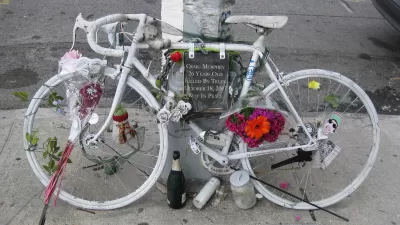
2015 Road Toll: 35,200 Fatalities
The National Highway Traffic Safety Administration (NHTSA) released preliminary fatality estimates for 2015. Deaths jumped by 2,525, an increase of 7.7 percent over 2014. Pedestrians and bicyclists saw the biggest increases.
California Environmental Law Continues to Frustrate Bike Planning (for Now)
Help is on the way. The law that requires the governor's planning office to devise an alternative method for measuring vehicle traffic for environmental compliance will also take up where an earlier law that exempted bike lanes from CEQA left off.
Pagination
Urban Design for Planners 1: Software Tools
This six-course series explores essential urban design concepts using open source software and equips planners with the tools they need to participate fully in the urban design process.
Planning for Universal Design
Learn the tools for implementing Universal Design in planning regulations.
Smith Gee Studio
City of Charlotte
City of Camden Redevelopment Agency
City of Astoria
Transportation Research & Education Center (TREC) at Portland State University
US High Speed Rail Association
City of Camden Redevelopment Agency
Municipality of Princeton (NJ)


































